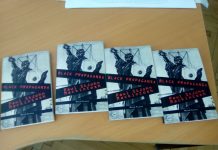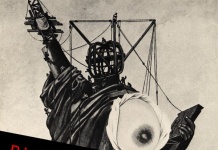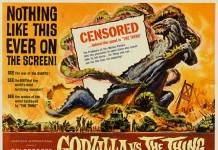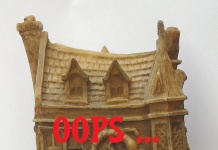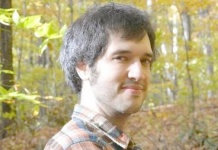Noted Canadian horror and dark fiction writer Simon Strantzas has given an interview to C. Derick Varn at Former People on the current climate in horror, weird fiction, dark tales, and the other genre definitions that cluster around the heart of darkness. And he feels, with some qualifications, that there has been a broad revival or resurgence in this area.
 “I think it’s true to say that in the last few years a style of fiction more grounded in the classically weird seems to have a louder voice than in the past,” he says. And although Strantzas attribtues this partly to cyclical factors, with “just the classically weird’s time at the crest,” I happen to agree with his analysis, and think that there’s more to it than just seasonality. I’d situate the resurgence in the rise of H.P. Lovecraft to cult icon status, and the influence of Thomas Ligotti. Those two interconnected factors, I reckon, what has helped horror and dark fiction move out from under the long shadow of Stephen King and into new territory.
“I think it’s true to say that in the last few years a style of fiction more grounded in the classically weird seems to have a louder voice than in the past,” he says. And although Strantzas attribtues this partly to cyclical factors, with “just the classically weird’s time at the crest,” I happen to agree with his analysis, and think that there’s more to it than just seasonality. I’d situate the resurgence in the rise of H.P. Lovecraft to cult icon status, and the influence of Thomas Ligotti. Those two interconnected factors, I reckon, what has helped horror and dark fiction move out from under the long shadow of Stephen King and into new territory.
“We are seeing new experimentation in the weird horror genre, which in many ways is exactly what the term “weird” is about — these writers are not content in repetiton and regurgitation; they want to bring to the table something only they can bring.” Strantzas maintains. Personally, I think that required an intellectual provocation. And there are some similarities in tone and feel among the new writers Strantzas instances – John Langan, Laird Barron, and even himself – that I believe came from that pedigree of cosmic horror originated by Lovecraft, travestied by King, and developed by Ligotti.
I’d love also to be able to agree with Strantzas’s other contention, that “there are many nuanced reasons why this sudden confluence of weird writers may have taken place, but to my mind the primary one is the rise of technology. Before the internet, weird fiction may not have been viable because it’s not terribly commercial. If horror thrives in the shadows, then the classically weird occupies their darkest umbra; in many ways, it’s an acquired taste. Before the internet, finding sympathetic readers could prove difficult, so a critical mass was difficult to reach.” If that’s so, we’re looking at a sub-genre whose currently flowering is substantially due to the internet and the new online publishing platforms.
It may be so. But unfortunately, there’s one conclusion from Strantzas that I find all too easy to agree with. “What’s unfortunate is that even the best of this new breed aren’t able to make a full-time living as a writer. But that’s nothing new. Not since the boom of the 80′s and 90′s have horror writers been able to live off their work.” So if you want to make your way in this fascinating new field, rich in potential and intellectual resonance, just don’t give up the day job.



















